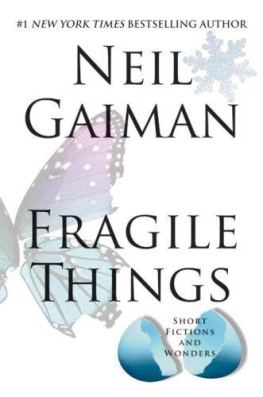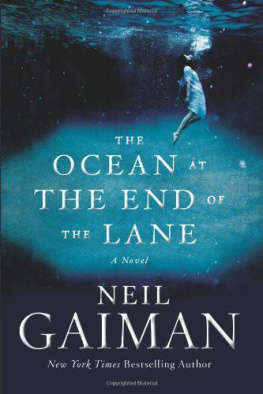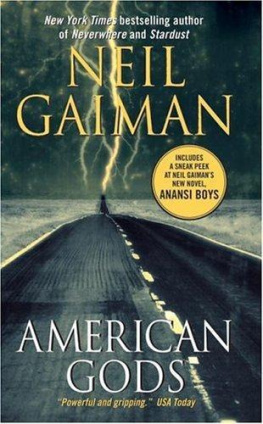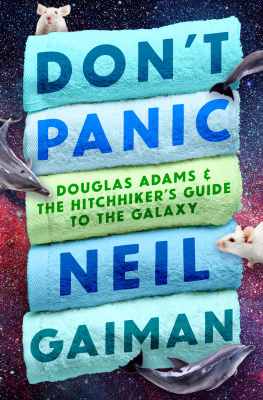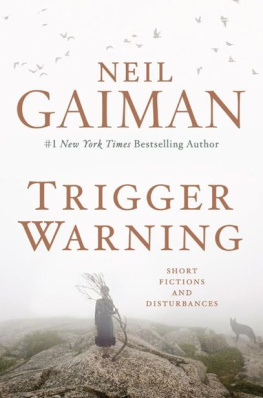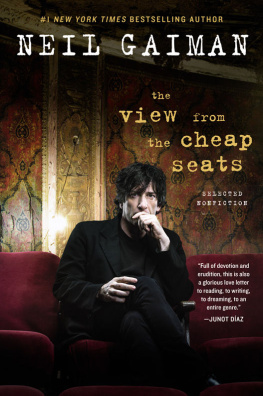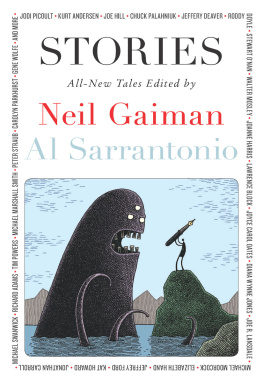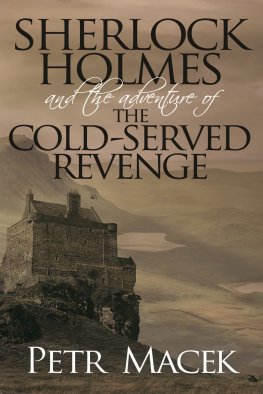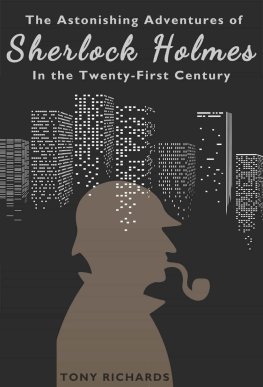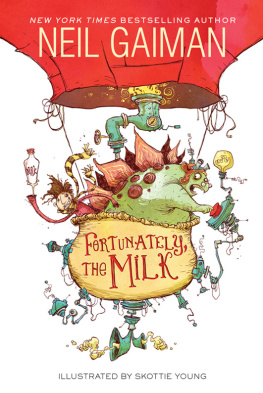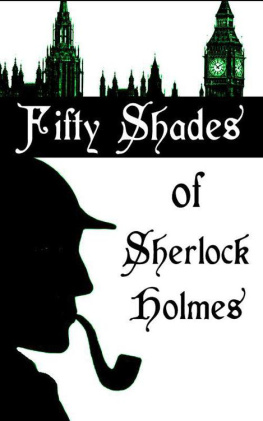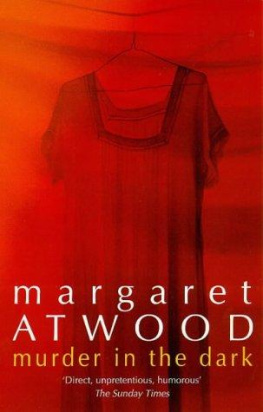FRAGILE THINGS
S HORT F ICTIONS AND W ONDERS
NEIL GAIMAN

For Ray Bradbury and Harlan Ellison,
and the late Robert Sheckley,
masters of the craft
CONTENTS
I thinkthat I would rather recollect a life misspent on fragile things than spent avoiding moral debt. The words turned up in a dream and I wrote them down upon waking, uncertain what they meant or to whom they applied.
My original plan for this book of tales and imaginings, some eight years ago, was to create a short story collection that I would call These People Ought to Know Who We Are and Tell That We Were Here, after a word balloon in a panel from a Little Nemo Sunday page (you can now find a beautiful color reproduction of the page in Art Spiegelmans book In the Shadow of No Towers ), and every story would be told by one of a variety of dodgy and unreliable narrators as each explained their life, told us who they were and that, once, they too were here. A dozen people, a dozen stories. That was the idea; and then real life came along and spoiled it, as I began to write the short stories youll find in here, and they took on the form they needed to be told in, and while some were told in the first person and were slices of lives, others simply werent. One story refused to take shape until I gave it to the months of the year to tell, while another did small, efficient things with identity that meant it had to be told in the third person.
Eventually I began to gather together the material of this book, puzzling over what I should call it now that the previous title seemed no longer to apply. It was then that the One Ring Zero CD As Smart as We Are arrived, and I heard them sing the lines I had brought back from a dream, and I wondered just what I had meant by fragile things.
It seemed like a fine title for a book of short stories. There are so many fragile things, after all. People break so easily, and so do dreams and hearts.
A STUDY IN EMERALD
This was written for the anthology my friend Michael Reaves edited with John Pelan, Shadows Over Baker Street. The brief from Michael was I want a story in which Sherlock Holmes meets the world of H. P. Lovecraft. I agreed to write a story but suspected there was something deeply unpromising about the setup: the world of Sherlock Holmes is so utterly rational, after all, celebrating solutions, while Lovecrafts fictional creations were deeply, utterly irrational, and mysteries were vital to keep humanity sane. If I was going to tell a story that combined both elements there had to be an interesting way to do it that played fair with both Lovecraft and with the creations of Sir Arthur Conan Doyle.
As a boy I had loved Philip Jos Farmers Wold Newton stories, in which dozens of characters from fiction were incorporated into one coherent world, and I had greatly enjoyed watching my friends Kim Newman and Alan Moore build their own Wold Newtondescended worlds in the Anno Dracula sequence and The League of Extraordinary Gentlemen, respectively. It looked like fun. I wondered if I could try something like that.
The ingredients of the story I had in the back of my head combined in ways that were better than I had hoped when I began. (Writings a lot like cooking. Sometimes the cake wont rise, no matter what you do, and every now and again the cake tastes better than you ever could have dreamed it would.)
A Study in Emerald won the Hugo Award in August 2004 as Best Short Story, something that still makes me intensely proud. It also played its part in my finding myself, the following year, mysteriously inducted into the Baker Street Irregulars.
THE FAIRY REEL
Not much of a poem, really, but enormous fun to read aloud.
OCTOBER IN THE CHAIR
Written for Peter Straub, for the remarkable volume of Conjunctions that he guest-edited. It began some years earlier, at a convention in Madison, Wisconsin, at which Harlan Ellison had asked me to collaborate with him on a short story. We were placed inside a rope barrier, Harlan at his typewriter, me at my laptop. But before we could start the short story, Harlan had an introduction to finish, so while he finished his introduction I started this story and showed it to him. Nope. It reads like a Neil Gaiman story, he said. (So I put it aside and started another story, which Harlan and I have now been collaborating on ever since. Bizarrely, whenever we get together and work on it, it gets shorter.) So I had part of a story sitting on my hard drive. Peter invited me into Conjunctions a couple of years later. I wanted to write a story about a dead boy and a living one, as a sort of dry run for a book for children I had decided to write (its called The Graveyard Book, and I am writing it right now). It took me a little while to figure out how the story worked, and when it was done, I dedicated it to Ray Bradbury, who would have written it much better than I did.
It won the 2003 Locus Award for Best Short Story.
THE HIDDEN CHAMBER
Began with a request from two editors, the Nancys Kilpatrick and Holder, to write something gothic for their anthology, Outsiders. It seems to me that the story of Bluebeard and its variants is the most gothic of all stories, so I wrote a Bluebeard poem set in the almost empty house I was staying in at the time. Upsettling is what Humpty Dumpty called a portmanteau word, occupying the territory between upsetting and unsettling.
FORBIDDEN BRIDES OF THE FACELESS SLAVES IN THE SECRET HOUSE OF THE NIGHT OF DREAD DESIRE
I started writing this story in pencil one windy winters night in the waiting room between platforms five and six of East Croydon railway station. I was twenty-two, going on twenty-three. When it was done I typed it up and showed it to a couple of editors I knew. One sniffed, told me it wasnt his kind of thing and he didnt honestly think it was actually anybodys kind of thing, while the other read it, looked sympathetic, and gave it back explaining that the reason it would never be printed was that it was facetious nonsense. I put it away, glad to have been saved the public embarrassment of having more people read it and dislike it.
The story stayed unread, wandering from folder to box to tub, from office to basement to attic, for another twenty years, and when I thought of it, it was only with relief that it had not been printed. One day I was asked for a story for an anthology called Gothic! and I remembered the manuscript in the attic and went up to find it, to see if there was anything in it that I could rescue.
I started reading Forbidden Brides, and as I read it I smiled. Actually, I decided, it was pretty funny, and it was smart, too; a good little storythe clumsinesses were mostly the sort of things youd find in journeyman work, and all of them seemed easily fixable. I got out the computer and did another draft of the story, twenty years after the first, shortened the title to its present form, and sent it off to the editor. At least one reviewer felt it was facetious nonsense, but that seemed to be a minority opinion, as Forbidden Brides was picked up by several best-of-the-year anthologies and was voted Best Short Story in the 2005 Locus Awards.
Im not sure what we can learn from that. Sometimes you just show stories to the wrong people, and nobodys going to like everything. From time to time I wonder what else there is in the boxes in the attic.
GOOD BOYS DESERVE FAVORS, THE FLINTS OF MEMORY LANE
One story was inspired by a Lisa Snellings-Clark statue of a man holding a double bass, just as I did when I was a child; the other was written for an anthology of real-life ghost stories. Most of the other authors managed tales that were rather more satisfying than mine, although mine had the unsatisfying advantage of being perfectly true. These stories were first collected in Adventures in the Dream Trade, a miscellany published by NESFA Press in 2002, which collected lots of introductions and oddments and such.
Next page
